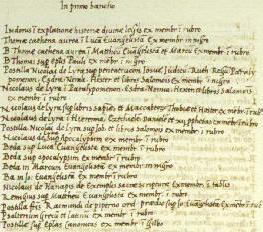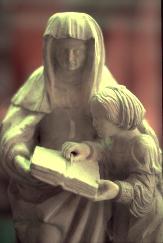#27: "The First Apologia" by St. Justin Martyr
Apologia means 'explanation'. In this case, a philosopher-turned-Christian tells Roman emperor all about Christianity. Breaking the secrecy that was common, thanks to persecution, he does his best to dispel urban rumors by openness about the true nature of Christian beliefs and rituals. He argues that individual Christians should be judged by what they do, not by what they are said to believe, and that Christian hunts are bad for the Empire's justice.
Also, with extensive quotes both from the myths and philosophers and the Greek Bible, he argues that Christianity has the full interpretation of the ancient Jewish scriptures, that the philosophers cribbed from the older Jewish material, and that many great Greek myths and new religions were set up by the demons to try to counteract Jewish prophecy. This seems odd to modern listeners. But the Roman government had as dim a view of "new religions" as the Japanese one. Part of why Judaism was tolerated and protected by the Empire was that it was old and had old records. If Christianity could be shown to be not a mere hundred and fifty years old, but the heir of a continuity of belief with Judaism, Christians would look much more respectable. (It was also a rebuke to his fellow Greeks among the Marcionites, who were so busily engaged in trying to purge Christianity of its Jewish roots that they wanted to throw out the Old Testament.)
Not everything that he reveals is good stuff. We peer into a world where Marcionites and followers of Simon Magus annoy the heck out of more mainstream Christians, and where tension is high between prophecy-saved Christians and the now temple-less Jews. And sometimes paranoia is justified. Recent research indicates that Mithras worshippers probably did copy some rituals from that popular new religion of Christianity, and may have even moved their date of celebration to coincide with Christmas (instead of the other way round). Still, the main annoyance seems to be persecution by pagan neighbors and the Empire, and it shadows this letter. "You can kill but not hurt us," says St. Justin, Doctor of the Church and martyr.
MANUAL DOWNLOAD HERE!
Part 1
Part 2
Part 3
Part 4
Part 5
Part 6
Part 7
2 hrs 25 min








0 Comments:
Post a Comment
<< Home